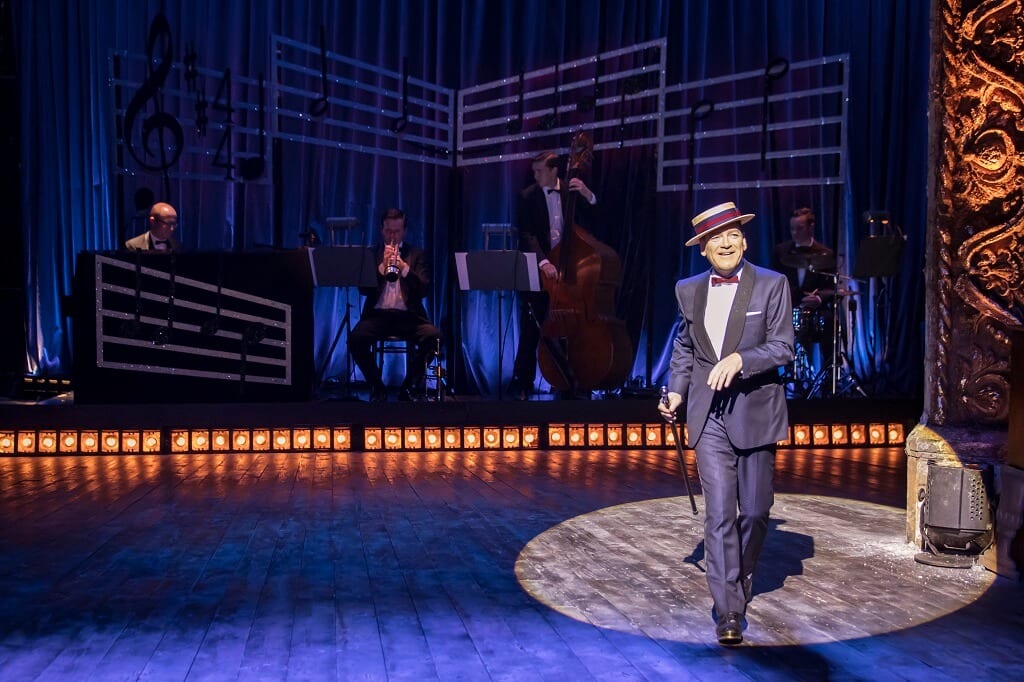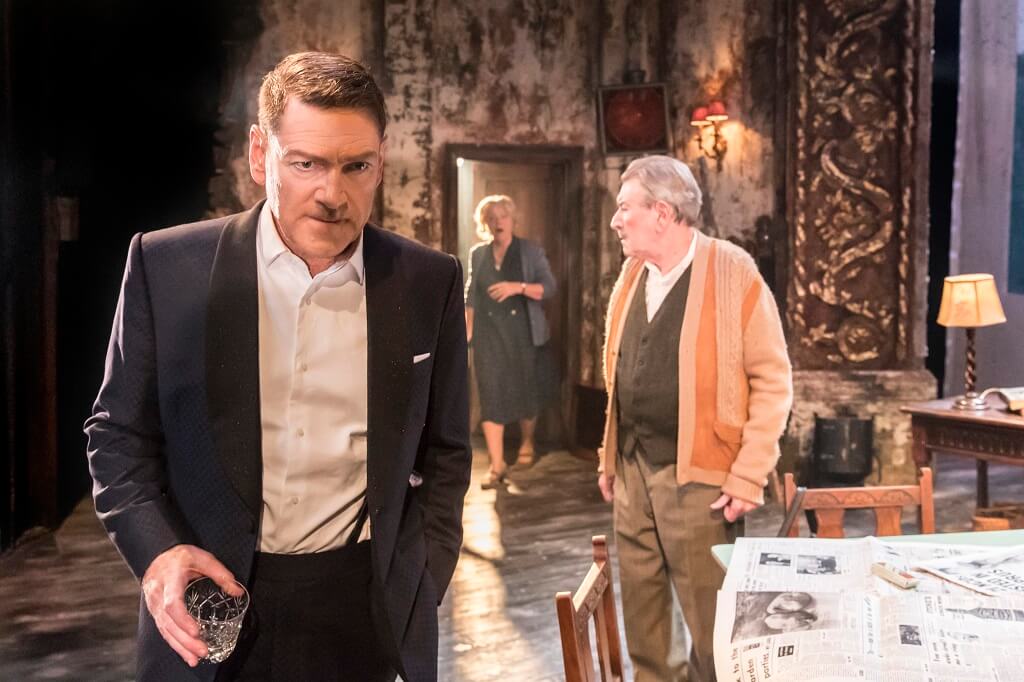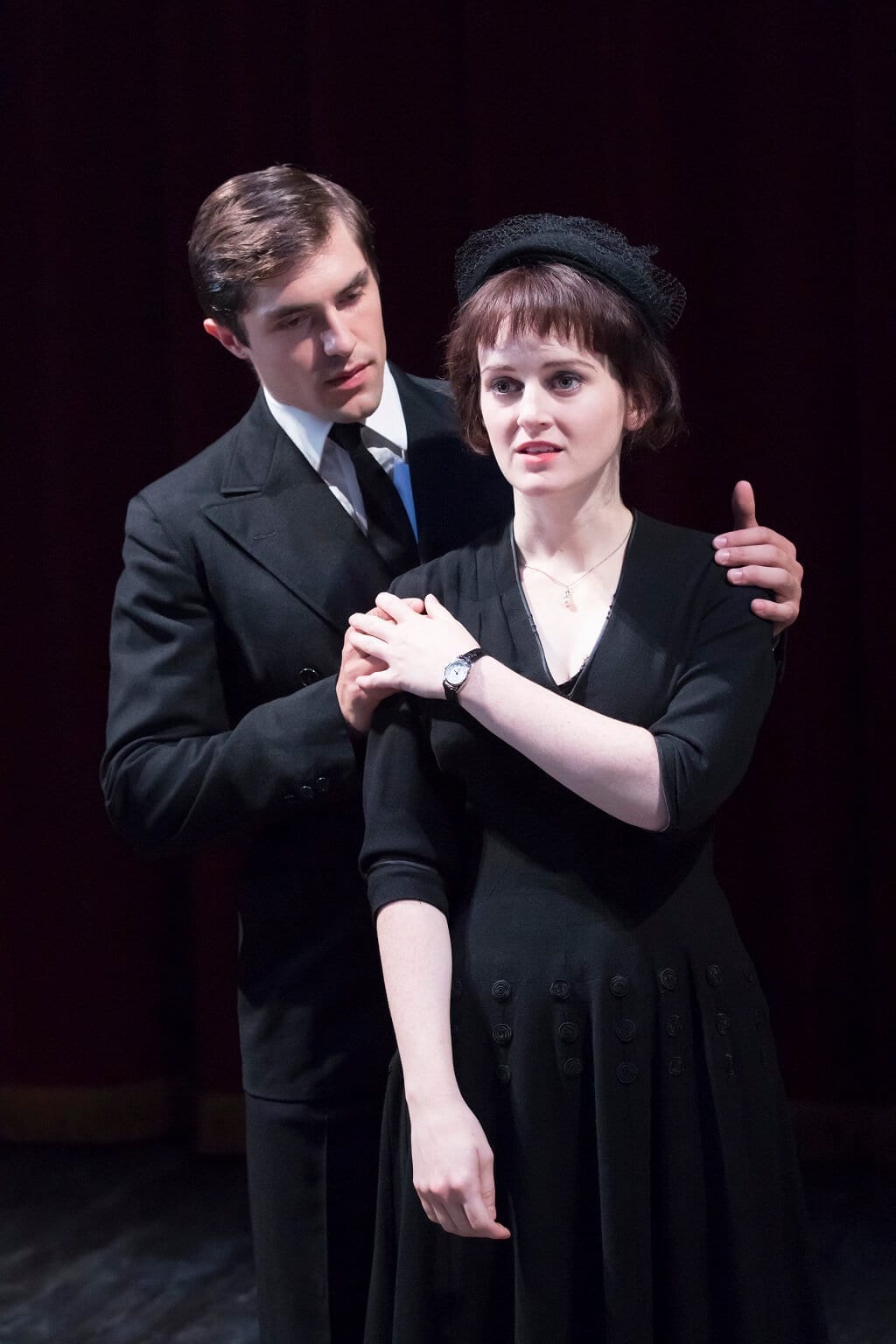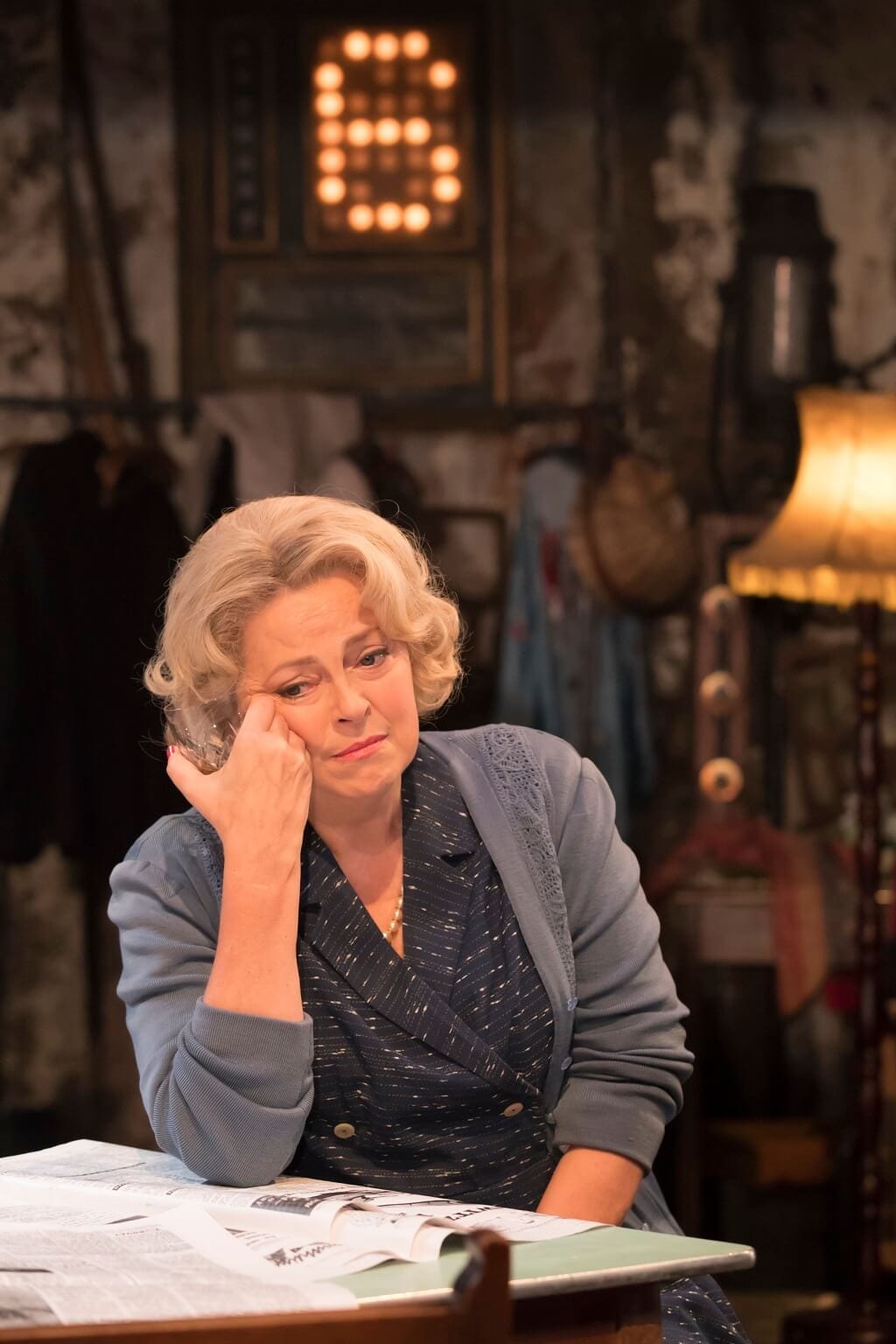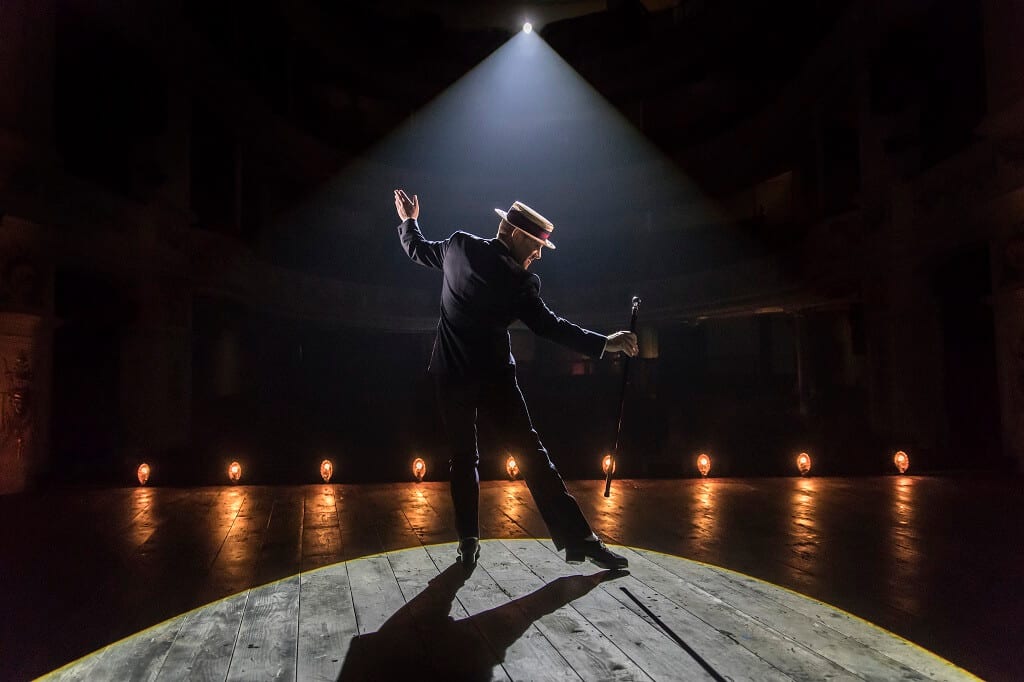The Entertainer is in danger of becoming a dated play, no longer able to speak to an audience with the explosive energy it must have produced in 1957 with Laurence Olivier. Kenneth Branagh’s theatre company has refused to let this come in the way of the production, instead drawing poignant links between the disintegrating British Empire in the post-war years, and the current political climate. In both 1957 and in 2016, the nation is forced to question their role and their identity: the old cry of Rule Britannia is no longer stable.
The metaphor of the faded music hall with its weak jokes and clichéd acts is a clever one for telling the tale of Britain’s imperial decline. Director Rob Ashford has made some interesting nods towards this metaphor, helped by Christopher Oram’s set that merges the ‘kitchen-sink’ claustrophobia with the decaying music hall. However, it is disappointingly under-whelming, and never moves beyond vaguely creative in the staging of the two settings. Perhaps the problem is the theatre space itself, never able to create the intensity of the Osborne ‘angry young man’ style, nor represent the crumbling music hall.
The play opens with Branagh in silhouette, slowly testing out his tap routine, the blue smoke suggesting the nostalgia for the once popular music hall act. Branagh as Archie Rice is impressive, consistently presenting a man who longs for something different, but doesn’t have the energy or the strength to search for it. He is the typical Osborne angry young man with his cry of desperation at feeling nothing except a frustrating inertia. Gawn Grainger as Billy Rice just about manages to avoid the cliché of the old, afraid, and racist grandfather; the audience are grateful for the moments of humour that his character provides. Phoebe Rice, neurotic, needy, fussing, and at moments surprisingly kind, is played with precision by Greta Scacchi. She exudes energy and makes up for the lack of nuance and subtlety from Sophie McShera as Jean Rice. As an ensemble the cast is good, but never quite achieves the grating kitchen-sink tension that we expect from Osborne.
This is an ambitious play that aims to bring all of Britain’s problems onto one stage. However, none of the issues ever quite reach fulfilment and you leave feeling that you’ve thought about a lot of things, but none of them particularly sharply. Perhaps the metaphor of the crumbling music hall would be more effective if more of the play was staged around a music hall. And perhaps the political reflections on the Suez Crisis would have more impact if we could feel more deeply about Mick’s far away death. Osborne’s play deserves to be reincarnated, but a more creative, original, and intense performance is needed to make it great again.

